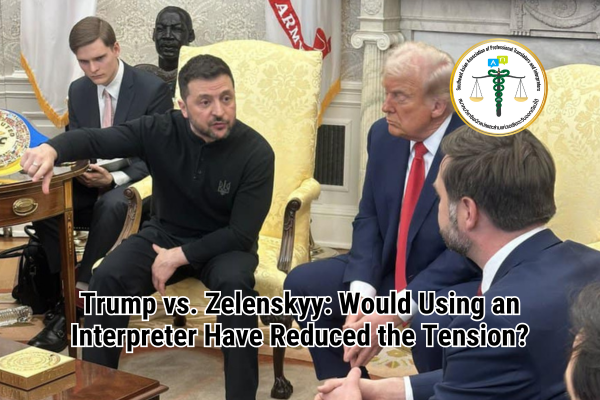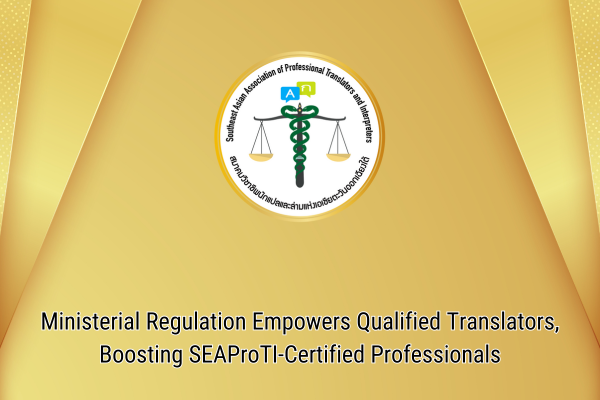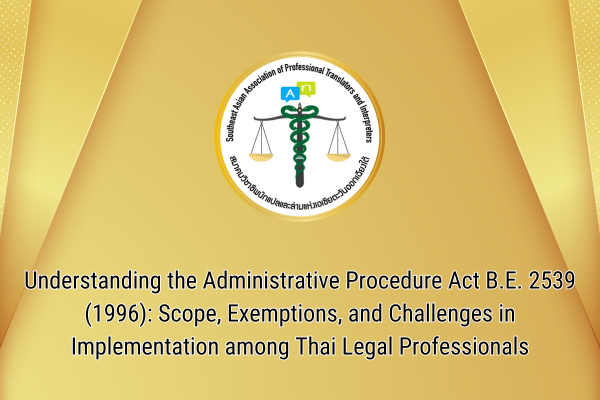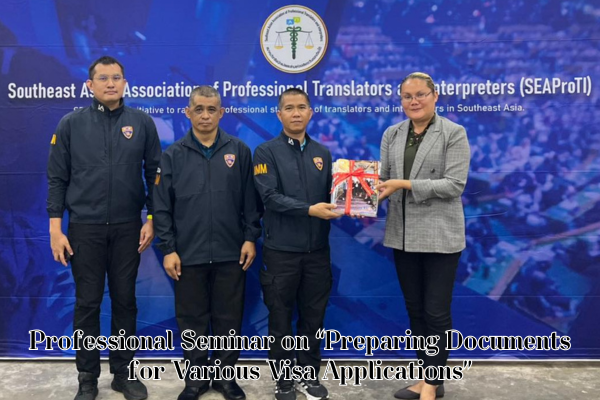Trump vs. Zelenskyy: Would Using an Interpreter Have Reduced the Tension?
2 March 2025, Bangkok – The meeting between Donald Trump, former U.S. President, and Volodymyr Zelenskyy, President of Ukraine, became a global talking point—not only because of the political disputes between the two nations but also due to the issue of language and power dynamics in communication. Many have questioned whether the outcome would have been different if Zelenskyy had chosen to speak through an interpreter instead of using English himself.
Would an interpreter have helped ease tensions and facilitated more effective communication? Or, given Trump’s personality and political style, would it have made no difference at all?
1. The Role of Interpreters in High-Level Diplomacy
Interpreters play a crucial role in international diplomacy, especially when leaders speak different languages. Using an interpreter not only ensures accurate communication but also provides certain strategic advantages, such as:
- Allowing time for reflection: Speaking through an interpreter gives the speaker extra time to formulate responses.
- Reducing emotional confrontations: Interpretation naturally introduces a buffer that may lower the intensity of heated exchanges.
- Maintaining diplomatic decorum: Opting for an interpreter signals respect for each party’s native language and cultural identity.
However, in the case of the Trump-Zelenskyy meeting, personality and power dynamics were key factors that an interpreter alone may not have been able to mitigate.
2. Trump’s Aggressive Communication Style and the Power of Language
Trump is known for his interruptions, domineering rhetoric, and confrontational style—a stark contrast to traditional diplomatic discourse. He frequently uses language as a tool to control conversations, ensuring that he dictates the narrative.
If an interpreter had been present, Trump may not have waited for the full translation and could have interrupted anyway. Furthermore, English holds a dominant position in global politics, and Zelenskyy’s decision to speak English directly might have been a strategic move to appear more relatable and authoritative. However, this choice also had its drawbacks—speaking in a non-native language can reduce precision and the impact of one’s words.
3. Macron’s Approach: A Different Example
French President Emmanuel Macron provides an interesting contrast. Although fluent in English, he has often chosen to use an interpreter in diplomatic meetings, especially with Trump. This strategy has served several purposes:
- Preventing interruptions: Trump, unable to understand French, had to wait for the full interpretation before responding.
- Minimizing misunderstandings: Macron ensured that his messages were conveyed precisely as intended.
- Maintaining control of the conversation: The use of an interpreter slowed down the discussion, forcing a more measured exchange.
Had Zelenskyy followed Macron’s approach, it might have prevented Trump from dominating the conversation as easily and could have provided Zelenskyy with a tactical advantage.
4. Would an Interpreter Have Reduced the Tension?
While using an interpreter could have introduced a more structured dialogue, the core issue in this meeting was not just language—it was power dynamics and Trump’s political strategy.
- With an interpreter, Trump might still have attempted to interrupt or override the interpretation.
- Without an interpreter, Zelenskyy faced the challenge of responding quickly in English, potentially weakening his position.
- Interpretation could have slowed down the conversation, reducing knee-jerk reactions, but it would not have changed Trump’s overall approach.
Conclusion: The Issue Wasn’t Just Language—It Was Power
This case highlights the fact that language is not just a tool for communication; it is also a tool of power in global politics. While using an interpreter could have helped structure the conversation, it would not have fundamentally altered the dynamics of a leader determined to use rhetorical tactics to dominate an exchange.
Ultimately, “language equality” cannot exist without power equality. Whether speaking directly or through an interpreter, diplomatic success depends on mutual respect, adherence to protocol, and an understanding of fair discourse—elements that were notably absent in this meeting between Trump and Zelenskyy.
SEAProTI’s certified translators, translation certification providers, and certified interpreters:
The Southeast Asian Association of Professional Translators and Interpreters (SEAProTI) has officially announced the criteria and qualifications for individuals to register as “Certified Translators,” “Translation Certification Providers,” and “Certified Interpreters” under the association’s regulations. These guidelines are detailed in Sections 9 and 10 of the Royal Thai Government Gazette, issued by the Secretariat of the Cabinet under the Office of the Prime Minister of the Kingdom of Thailand, dated July 25, 2024, Volume 141, Part 66 Ng, Page 100.
To read the full publication, visit: the Royal Thai Government Gazette
ทรัมป์ vs. เซเลนสกี: การใช้ล่ามการทูตจะช่วยลดความขัดแย้งได้หรือไม่
2 มีนาคม 2567, กรุงเทพมหานคร – การพบปะระหว่าง โดนัลด์ ทรัมป์ อดีตประธานาธิบดีสหรัฐฯ และ โวโลดีมีร์ เซเลนสกี ประธานาธิบดียูเครน กลายเป็นประเด็นร้อนในเวทีโลก ไม่เพียงเพราะประเด็นทางการเมืองระหว่างทั้งสองประเทศ แต่ยังรวมถึง ประเด็นด้านภาษาและอำนาจในการสื่อสาร หลายคนตั้งคำถามว่า หากเซเลนสกีใช้ล่ามแทนการพูดภาษาอังกฤษเอง ผลลัพธ์ของการสนทนาจะเปลี่ยนไปหรือไม่ การมีล่ามจะช่วยลดความตึงเครียดและทำให้เกิดการสื่อสารที่มีประสิทธิภาพมากขึ้นหรือเปล่า หรือแท้จริงแล้ว อำนาจทางการเมืองและบุคลิกของทรัมป์ทำให้ผลลัพธ์ไม่ต่างกันเลย
1. บทบาทของล่ามในการทูตระดับสูง
ล่ามเป็นบุคคลสำคัญในการทูตระหว่างประเทศ โดยเฉพาะเมื่อผู้นำสองประเทศมีความแตกต่างด้านภาษา การใช้ล่ามไม่เพียงแต่ช่วยให้การสื่อสารแม่นยำขึ้น แต่ยังช่วยสร้างระยะห่างที่จำเป็นให้กับการสนทนา เช่น
- การให้เวลาคิด: การพูดผ่านล่ามทำให้ผู้พูดมีเวลาทบทวนคำตอบ
- การลดอารมณ์ความขัดแย้ง: เมื่อล่ามแปลข้อความ อารมณ์ของคู่สนทนาอาจถูกกลั่นกรอง ทำให้ความร้อนแรงลดลง
- การรักษาภาพลักษณ์ทางการทูต: การใช้ล่ามแสดงให้เห็นถึงการให้เกียรติภาษาแม่ของแต่ละฝ่าย
แต่ในกรณีของการสนทนาระหว่างทรัมป์และเซเลนสกี ปัจจัยด้านบุคลิกภาพของผู้นำก็เป็นตัวแปรสำคัญที่ต้องพิจารณา
2. ทรัมป์: ภาวะผู้นำแบบเผชิญหน้าและอำนาจของภาษา
ทรัมป์เป็นที่รู้จักในเรื่อง การพูดตัดบทไปโดยไม่รอล่าม การตัดบท และการใช้วาทศิลป์เพื่อกดดันคู่สนทนา ซึ่งแตกต่างจากนักการเมืองที่เคร่งครัดในมารยาททางการทูต เขามักใช้ภาษาอังกฤษเป็นเครื่องมือควบคุมการสนทนา หากมีล่ามเข้ามาแปลคำพูดของเซเลนสกี ทรัมป์อาจไม่รอให้แปลจบ และยังคงขัดจังหวะอยู่ดี
นอกจากนี้ ภาษาอังกฤษเป็นภาษาที่มีอำนาจในเวทีการเมืองโลก การที่เซเลนสกีเลือกพูดภาษาอังกฤษเอง อาจเป็นความพยายามแสดงตนว่าเป็นผู้นำที่สามารถสื่อสารได้โดยตรง แต่ข้อเสียก็คือ เขาอาจสูญเสียการควบคุมข้อความที่ต้องการสื่อ เพราะเมื่อไม่ได้ใช้ภาษาแม่ ความแม่นยำและน้ำหนักของคำพูดอาจลดลง
3. บทเรียนจากกรณีของมาครง
เอ็มมานูเอล มาครง ประธานาธิบดีฝรั่งเศส เป็นตัวอย่างของผู้นำที่แม้จะพูดภาษาอังกฤษได้ดี แต่ก็เลือกใช้ล่ามในบางสถานการณ์ทางการทูต โดยเฉพาะเมื่อต้องเจรจากับทรัมป์ ซึ่งเป็นการ ปกป้องตนเองจากการถูกตัดบท ลดโอกาสการเกิดความเข้าใจผิด และทำให้คู่สนทนาต้องฟังให้จบก่อนตอบโต้
หากเซเลนสกีเลือกแนวทางเดียวกับมาครง อาจทำให้ทรัมป์ไม่สามารถใช้กลยุทธ์ “การพูดแทรก” ได้ง่าย และอาจลดความกดดันในการสนทนาได้
4. การใช้ล่าม: ลดความขัดแย้งหรือไม่?
แม้ว่าการใช้ล่ามอาจช่วยสร้างความเป็นกลางทางภาษา แต่ ปัญหาในกรณีนี้ไม่ได้อยู่ที่การใช้ภาษาหรือการมีล่าม แต่อยู่ที่อำนาจทางการเมืองและท่าทีของทรัมป์
- หากมีล่าม ทรัมป์อาจยังคงพยายามแทรกแซง หรือพูดตัดบทไปเลย โดยไม่ต้องรอคำแปลจากล่าม
- หากไม่มีล่าม เซเลนสกีอาจเสียเปรียบในการถ่ายทอดสารสำคัญ
- การใช้ล่ามอาจช่วยลดความเร็วของการสนทนา และเพิ่มการคิดก่อนพูด แต่ไม่ได้รับประกันว่าผลลัพธ์จะเปลี่ยนไป
บทสรุป: ปัญหาไม่ใช่แค่เรื่องภาษา แต่เป็นเรื่องอำนาจ
กรณีนี้สะท้อนให้เห็นว่า ภาษาไม่ใช่เพียงเครื่องมือในการสื่อสาร แต่ยังเป็นเครื่องมือแห่งอำนาจ ในเวทีการเมืองระหว่างประเทศ แม้การใช้ล่ามอาจช่วยให้การสนทนามีความเป็นระบบขึ้น แต่ก็ไม่สามารถเปลี่ยนแปลงพฤติกรรมของผู้นำที่ต้องการใช้ “เกมจิตวิทยา” กับคู่สนทนาได้
ท้ายที่สุด “ความเท่าเทียมทางภาษา” จะเกิดขึ้นไม่ได้เลย หากไม่มีความเท่าเทียมทางอำนาจ ในการทูต ไม่ว่าจะพูดผ่านล่ามหรือไม่ ผู้นำต้องมี ความเคารพซึ่งกันและกันในฐานะมนุษย์และในฐานะตัวแทนของประเทศ ซึ่งเป็นปัจจัยสำคัญที่ขาดไปในการพบปะระหว่างทรัมป์และเซเลนสกี
เกี่ยวกับนักแปลรับรอง ผู้รับรองการแปล และล่ามรับรองของสมาคมวิชาชีพนักแปลและล่ามแห่งเอเชียตะวันออกเฉียงใต้
สมาคมวิชาชีพนักแปลและล่ามแห่งเอเชียตะวันออกเฉียงใต้ (SEAProTI) ได้ประกาศหลักเกณฑ์และคุณสมบัติผู้ที่ขึ้นทะเบียนเป็น “นักแปลรับรอง (Certified Translators) และผู้รับรองการแปล (Translation Certification Providers) และล่ามรับรอง (Certified Interpreters)” ของสมาคม หมวดที่ 9 และหมวดที่ 10 ในราชกิจจานุเบกษา ของสำนักเลขาธิการคณะรัฐมนตรี ในสำนักนายกรัฐมนตรี แห่งราชอาณาจักรไทย ลงวันที่ 25 ก.ค. 2567 เล่มที่ 141 ตอนที่ 66 ง หน้า 100 อ่านฉบับเต็มได้ที่: นักแปลรับรอง ผู้รับรองการแปล และล่ามรับรอง
























